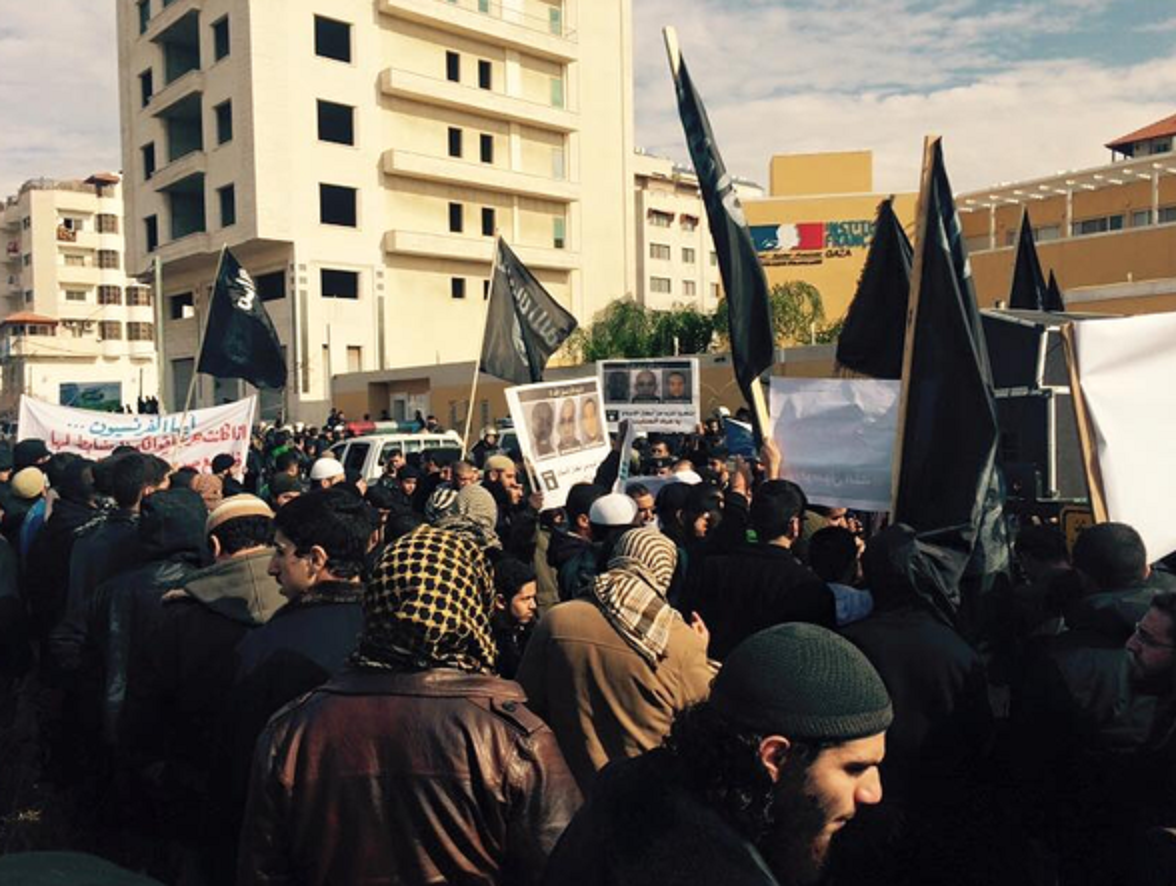
A Palestinian journalist was reportedly kidnapped and tortured for eight hours in Gaza this week by a group claiming to be part of Islamic State (ISIS), amid signs that the group are gaining support in the enclave and being tolerated, up to a point, by Hamas.
The journalist, Mohammed Omer was allegedly taken by the men and held between 2pm and 10pm, before they dumped him outside Shifa hospital in central Gaza. Omer has since informed police that the men who held him said they were from ISIS.
The reasons behind taking Omer hostage remain unclear - the journalist has written extensively about the Israel-Palestine conflict in the past, but has not reported widely on either ISIS or Hamas so the motivation remains a mystery. However, increased activity calls into question to what extent the terrorist group are operating in the region, and how Hamas will respond to their presence.
While Islamic extremists have been operating in the region for almost 10 years, including Jaysh al-Islam (The Army of Islam) and Jund Ansar Allah (Soldiers of the Supporters of Allah), Hamas, itself an Islamist group, has been largely able to control and contain these groups, despite there being a few violent clashes in the past. However, with the rise of ISIS and the rapid spread of their propaganda and ideology online, Hamas may now face new, larger-scale opposition.
The scepticism about the terrorist group's powers in the region may be the reason Hamas have, so far, been fairly passive in their actions towards then. On 19th January they even allowed Salafist militants and supporters, many of whom carried ISIS flags, to protest outside the French Cultural Centre after the French satirical magazine Charlie Hebdo published a cartoon of the Prophet Muhammed following the Islamist attack on its offices in Paris.
"They allowed them to do that because those French cartoons were offensive to all Muslims," Mkheimar Abu Saada, a political scientist at French Cultural Centre , explains that if Hamas are extremely suspicious and watchful of the group's activities. "Whether Hamas will take a stand against ISIS remains to be seen but I highly doubt they will tolerate them [in Gaza]. Hamas feel that they control Gaza and they will not want to lose that control."
In November last year, leaflets headed with the ISIS flag were distributed in Gaza, threatening poets, writers and women. One leaflet read: "We warn the writers and poets of their wanton sayings and atheist deeds. We give the apostates three days to retract their apostasy and wantonness and enter the religion of Islam anew."
https://twitter.com/animer/status/530657806450307072
There have also been reports of Islamic State flags being seen at football games and people driving with ISIS stickers on their windscreens.
Despite these signs that ISIS, or at least supporters of ISIS are at work in Gaza, many are dubious about the extent or even legitimacy of these groups. Abu Saada dismisses the idea that they are connected to the terrorist organisation on an operational level.
"What we know about the groups in Gaza is that they have an allegiance and sympathy with the Islamic State, but we don't have concrete information that shows they are actually part of ISIS. Signs of the Islamic State first appeared in Gaza two or three months ago - some flags, and then people handing out leaflets, but I doubt these people are really connected to ISIS."
Abu Saada does acknowledge that when the tunnels between the Egyptian Sinai Peninsula and the Gaza Strip were still operating last year about 100 Palestinians did go to fight in Syria and Iraq alongside ISIS. However, most of these tunnels now been destroyed to create a 500m 'buffer zone' between the countries and as Abu Saada points out, Gaza remains very cut off from the rest of the world, meaning that most information or support for the Islamic State will be online rather than in physical presence. "You have to remember that Gaza is unconnected from the outside world - the only connection is through electronic tools and mechanisms," he says.
Grant Rumley, researcher of Palestinian and Jordanian politics at the Foundation for Defense of Democracies (FDD) is also doubtful of ISIS's position in Gaza: "Some of these jihadi groups may be sympathetic with al-Baghdadi [the Islamic State leader], but if this translates to an operational level is questionable. I don't think these people are necessarily credited - they're more like fanboys," he adds.
Rumley, in contrast to Abu Saada, believes that the appearance of support for the Islamic State in Gaza might actually be a useful tool for Hamas. "Having ISIS in Gaza shows that Hamas aren't the worst group - they can say to the West: 'Look, we're keeping them in check'," he says although admits that on a domestic front Hamas will not look kindly on any challenges to their authority.
And will Israel be stepping in at any point? "Israel will let Hamas deal with the ISIS problem in Gaza," Abu Sadda says. "But if there's any real threat to them the Israeli military will take action. They don't wait around."
Uncommon Knowledge
Newsweek is committed to challenging conventional wisdom and finding connections in the search for common ground.
Newsweek is committed to challenging conventional wisdom and finding connections in the search for common ground.
About the writer
Lucy is the deputy news editor for Newsweek Europe. Twitter: @DraperLucy
To read how Newsweek uses AI as a newsroom tool, Click here.








